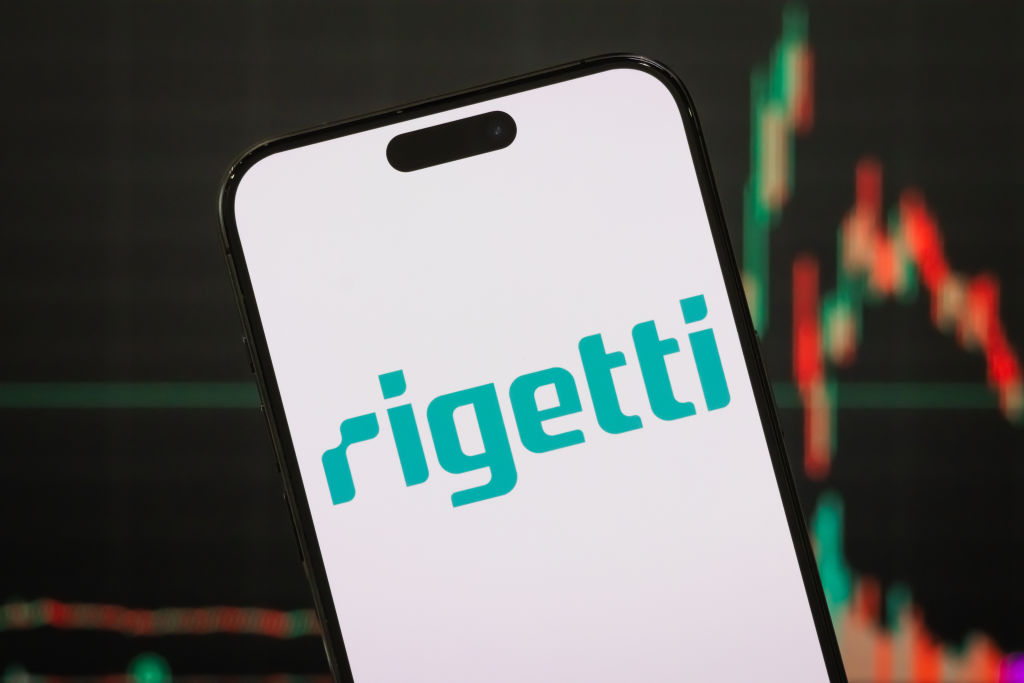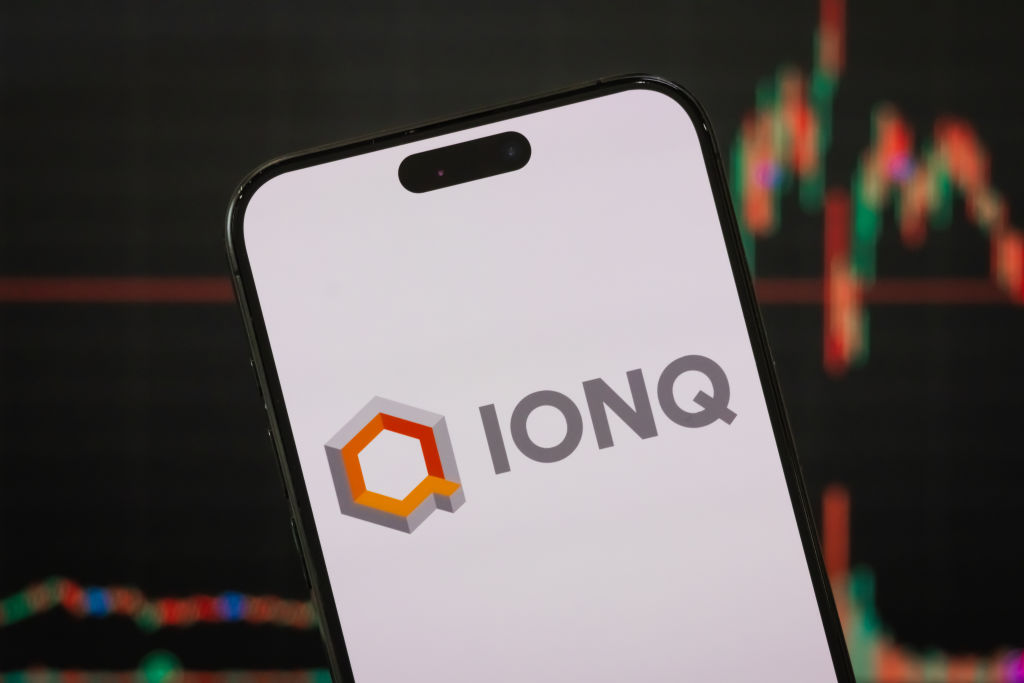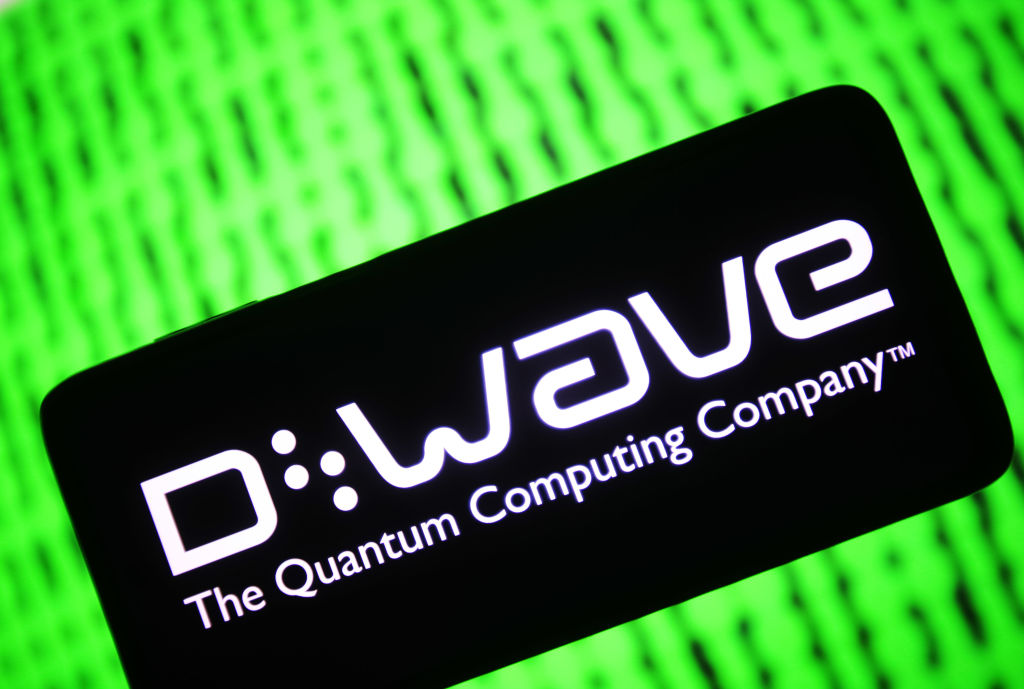
A little more than a year ago, about six weeks before President Donald Trump was inaugurated for the second time, Google introduced a quantum computing chip, Willow, that engineers used to solve the hardest benchmark in the field.
A post on the Alphabet (GOOGL) subsidiary's blog explains the significance of the achievement:
"Willow's performance on this benchmark is astonishing: It performed a computation in under five minutes that would take one of today's fastest supercomputers ... 10 septillion years. If you want to write it out, it's 10,000,000,000,000,000,000,000,000 years. This mind-boggling number exceeds known timescales in physics and vastly exceeds the age of the universe."
The announcement sent Alphabet stock soaring, with GOOGL finishing up more than 5% on December 10, 2024. It also ignited a massive rally for quantum computing stocks and attracted the attention of the incoming administration.
The Trump White House has since shown interest in sensitive economic sectors and industries, making equity investments in publicly traded companies, including chipmaker Intel (INTC) and miner MP Materials (MP).
In his 2026 tech outlook, Wedbush analyst Dan Ives predicted the administration will "make an equity investment in a quantum computing company," identifying two of the names we discuss below as potential targets.
Here, we take a closer look at the developing technology and how to invest in quantum computing stocks.
What is quantum computing?
Traditional computers encode information as 0s and 1s, essentially operating as an intricate network of on and off switches. This simple yet elegant binary design has powered decades of innovation and progress.
Quantum computing flips this model entirely. It steps into the fascinating, albeit spooky, world of quantum mechanics. Quantum computers use qubits, which can actually exist in multiple states simultaneously. This is known as "superposition."
"When qubits are entangled, what happens to one affects the others, even if they're separated," writes Mabel Oza, an adjunct professor at the University of Illinois at Chicago for blockchain and cryptocurrency and the founder of ChaChing Social. "This interconnectedness is key to the power of quantum computers."
The potential of quantum computing is enormous.
"Getting to large-scale quantum computing will enable the world to solve its biggest problems in minutes – in the time it would take today’s supercomputers to do in millions of years," said Karthee Madasamy, founder and managing partner at MFV Partners, founder and managing partner at MFV Partners. "That could create $850 billion in economic value by 2040."
As for investment opportunities, there are different ways to play quantum computing. One is to focus on mega-cap tech stocks such as GOOGL, Nvidia (NVDA), Microsoft (MSFT) and IBM (IBM). But the impact of quantum computing technology on their income statements and balance sheets may be muted because they have other large revenue streams.
There are emerging pure-play companies in the category, including some that are publicly traded.
Let's take a look at three of them.
Rigetti Computing

Founded in 2013, Rigetti Computing (RGTI) is one of two quantum computing stocks Ives thinks the Trump administration will invest in.
Rigetti, which uses cutting-edge techniques such as alternating-bias assisted annealing and multiple processors that provide high levels of accuracy, has deployed 18 quantum computing systems so far.
This is the result of heavy investments in R&D. Among its 140 employees, 49 hold Ph.D.s. Rigetti has also amassed a portfolio of 237 issued and pending patents for quantum engineering, fabrication and algorithms
In December 2024, Rigetti introduced its 84-qubit Ankaa-3 system achieved a median two-qubit gate (2QG) fidelity of 99.5%.
"This measures how accurate a quantum computer is by testing the performance of a two-qubit gate under different conditions," Professor Oza notes. "It's a key operation in quantum computing and is essential for connecting qubits and enabling complex calculations."
Rigetti reported third-quarter revenue of $1.9 million, down from $2.4 million a year ago, as its net loss expanded to $201 million from $15 million.
Management also announced that Rigetti is supporting NVIDIA NVQLink, Nvidia's (NVDA) new open platform for integrating AI supercomputing with quantum computers.
As of September 30, Rigetti had cash, cash equivalents and available-for-sale investments of $466.9 million.
IonQ

After more than two decades in the academic world, Chris Monroe and Jungsang Kim cofounded IonQ (IONQ) in 2015. Their company is another quantum computing stock the Trump administration will consider taking a stake in, according to Dan Ives.
Monroe and Jungsang licensed critical technology from the University of Maryland and Duke University. The co-founders also went on to raise capital from New Enterprise Associates, Google, Amazon.com (AMZN) and Samsung Electronics.
IonQ has built an impressive IP (intellectual property) portfolio and now controls more than 600 U.S. and international issued and pending patents.
The focus on R&D has certainly paid off. In September, IonQ announced its next-generation system, which achieved a 2QG fidelity level of 99.9%. And the company met its goal to get to 99.999% by the end of 2025.
As a sign of IonQ's strength, the company has been able to snag a variety of key partnerships, including deals with AstraZeneca (AZN), ANSYS (ANSS) and the United States Air Force Research Lab.
In November, IonQ said its third-quarter revenue beat its top-end guidance by 37% and grew by 222% year over year.
And the $1.075 billion acquisition of Oxford Ionic closed in September. According to IonQ's press release, the acquisition combines its tech stack with Oxford Ionics' "groundbreaking" ion-trap technology manufactured on standard semiconductors.
Even after the transaction there's nearly $350 million in cash on IonQ's balance sheet.
D-Wave Quantum

D-Wave Quantum (QBTS) got its start back in 1999. The company's co-founders from the University of British Columbia saw a need for innovation with qubit designs.
Getting to commercialization has certainly taken some time. Then again, the industry has only gained traction with customers in recent years.
"One of the most positive trends we're seeing at D-Wave is the growing number of customers moving applications into production," said CEO Dr. Alan Baratz. "Because we offer annealing quantum computing, a type of quantum computing that is uniquely suited for solving complex optimization problems and is commercial-grade now, our customers are realizing value from the technology today."
Customers are seeing considerable benefits. In a pilot test with Japan's largest mobile phone operator, NTT DOCOMO, D-Wave's systems reduced paging signals during peak calling times by 15%.
D-Wave reported year-over-year revenue growth of 100% for its third quarter and a corresponding 131% rise in gross profit for its third quarter. The company also boasts a cash balance of more than $800 million.
Is there an ETF for quantum computing?

In his keynote address at CES 2025, Nvidia CEO Jensen Huang said that effective quantum computers wouldn't hit the market until 15 to 30 years from now, sparking a sell-off in quantum computing stocks.
Huang apologized for those comments and invited several CEOs of quantum computing firms to Nvidia's first-ever "Quantum Day" at its annual GTC conference.
Last March, Julian Kelly, Google Quantum AI's director of hardware, gave his timeline for quantum computing, saying practical applications of the technology are roughly five years out.
For investors, the bottom line is to remain cautious, as quantum computing stocks have proven themselves to be highly volatile. If you choose to invest in the developing industry, make sure to do so with money you can afford to lose.
For those who are more risk-averse but still curious, there is an exchange-traded fund for quantum computing: the Defiance Quantum ETF (QTUM).
Top holdings include Rigetti and D-Wave, as well as some large-cap stocks such as Palantir Technologies (PLTR) and Intel.
You can learn more about QTUM at the Defiance ETFs provider site.







